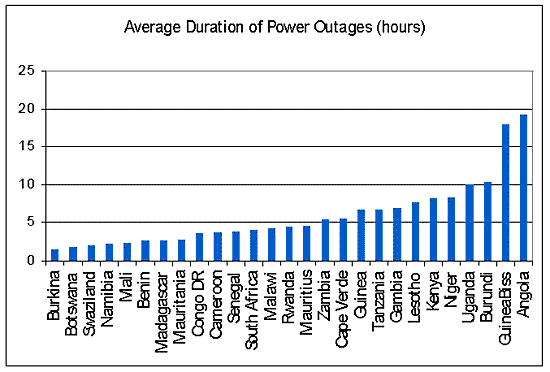Today the Volcker Commission released a report with a set of recommendations about how the World Bank can strengthen its anti-corruption procedures by reforming its Department of Institutional Integrity. This is an important and timely conversation and the report will no doubt receive a high level of attention. But it is equally important that the Bank does not put corruption ahead of its central task—the alleviation of poverty.In recent years, issues of bribery and corruption have dominated energy projects funded by the World Bank and rich country aid institutions. Multilateral institutions and individual countries have taken action against several large businesses, in a somewhat piecemeal fashion. And poor countries have paid a very high price. In 2003, the world's largest power producing company, AES, pulled out of the Bujagali Falls project, prompting this brief mention in the New York Times:
The world's largest independent power producer, the AES of Arlington, VA, said that it would not build a $500 million dam at Bujagali Falls on the Nile. Frustrated by protests and a nearly decade-long delay, the company pulled out of what would have been the largest foreign investment project ever in East Africa. Environmental advocates celebrated but the World Bank said that it continued to think that the dam is the best way to increase Uganda's power supply.
The New York Times decided that this story warranted a mere 78 words. But for millions of Ugandans, the decision by AES had disastrous consequences—the Ugandan private sector is continuing to pay a high price for the lack of a reliable supply of power. Currently, the capital city of Kampala has regular rolling blackouts averaging 10 hours (see figure below); both businesses and consumers are facing enormous shortages of electricity and fuel such as diesel. About 1 percent of rural Ugandans have access to electricity.Why did AES pull out? This decision was driven in part by economic reasons. But AES also fell victim to problems of corruption in Uganda. The allegation made in 2003 was that AES paid or agreed to pay bribes in violation of the
U.S. Foreign Corrupt Practices Act. The deal between AES and the Government of Uganda was also kept secret; when legal action forced the document to become public, several groups complained that the payments to AES would have been greatly in excess of what would be considered fair compensation.Similar fates have befallen Lahmeyer International, a German enterprise operating in several countries and Acres International, a Canadian enterprise specializing in infrastructure. Both are very large companies, capable of delivering large-scale infrastructure projects. In 2002-03, both were convicted of bribery and corruption charges in Lesotho. Several more construction and engineering businesses from the United States, United Kingdom, Canada, and Japan currently appear on the World Bank's list of debarred businesses. Many businesses capable of delivering on large-scale infrastructure projects are either wary about bidding on projects in Africa or are already on someone's list of debarred businesses. Ironically, efforts to crack down on this problem have led to the exit of large firms which are capable of delivering big regional infrastructure projects. Several years after AES left Uganda, the World Bank has re-launched the much-needed Bujagali Falls hydropower project. It will likely take a few more years before Uganda gets relief from its power situation. For children trying to study at night, hospitals and clinics trying to store vaccines and medicines and businesses trying to manufacture products in Uganda and many other parts of Africa, the wait is far from over.There are no easy answers to the problem of corruption—clearly, we cannot trade off corruption for delivery of infrastructure or other services. But it is clear that donors' piecemeal efforts to stop corruption have also limited the number of companies who have the capacity to work in Africa from bidding on contracts and have delayed the building of much-needed infrastructure. The real solution lies in persuading governments in developing countries to become more hospitable towards the private sector and more broadly towards a pro-poor growth agenda. In some cases, this is already happening—democratically-elected leaders in Africa and their technocratic advisers are emphasizing the importance of infrastructure and the growth of the private sector. It is just as important—and maybe more—for the World Bank to help these efforts than it is to worry about fixing the organizational problems at its headquarters.

Source: World Bank Enterprise Surveys
CGD blog posts reflect the views of the authors, drawing on prior research and experience in their areas of expertise.
CGD is a nonpartisan, independent organization and does not take institutional positions.


 Source: World Bank Enterprise Surveys
Source: World Bank Enterprise Surveys